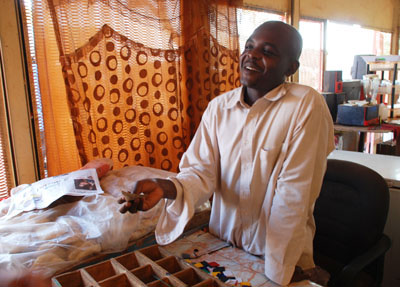
Of the many issues left to be worked out between North and South Sudan before secession, the question of citizenship is one of the most personal and, among those with strong links to both North and South, urgent. The northern and southern governments are currently locked in discussions over a host of issues that will face the two countries and their citizens, and, given the high stakes, the talks have transpired largely out of the public eye. Absent public reassurances from the NCP or the SPLM, many Sudanese remain in the dark about their legal status and rights after the split.
At a gathering in Juba earlier this year geared toward getting women more involved in the governing process in the two states, participants often raised citizenship as a key issue. Lilian Riziq, the head of the Southern Sudan Women’s Empowerment Network and the organizer of the meeting, recounted the experience of one participant, a southern women who lives in Khartoum with her school-age children. Through their father, the children are considered northerners. “She said she doesn’t know where she belongs, because she wants to stay in the North for now for her family’s sake,” but she doesn’t want to lose her connection to the South, Riziq said.
An estimated 1.5 million southerners live in the North, having left the South during the war or for economic and educational opportunities. Uncertainty about the prospects for southerners in the North during this transition has prompted more than 261,000 southerners to “return” to the South, even if some of them only have an ancestral connection to the region and have never lived there. A significantly smaller population of northerners lives in the South, many of whom sought economic opportunities, particularly in the border region.
Sources familiar with North-South negotiations say that the option of dual citizenship is off the table and that the two countries will likely devise their own policies on who qualifies for citizenship and agree to a period of transition. Legally, the northern government cannot strip citizenship from any person who was eligible to vote in the southern referendum – its initial stance – and northern officials are being advised to step back from that position. The southern government has been far less vocal about its views on eligibility for southern citizenship, but on few occasions, SPLM officials have struck an inclusive tone.
Practically speaking, enforcing strict citizenship guidelines and a firm border takes financial resources and manpower – considerations working in favor of those who are concerned that their current status will be jeopardized, at least in the short-term.
The Open Society Foundations recently published a paper by Bronwen Manby that delves into the international legal standards governing citizenship. Manby’s topline message is that citizenship in Sudan should not be based on ethnicity. Her explanation is compelling and tragically timely:
The best illustrations of the dangers of defining citizenship on the basis of ethnicity lie in DRC and Côte d’Ivoire. At the most extreme, exclusion from the polity on the basis of presumed disloyalty, often determined on the basis of a last name – which has lasted generations in many cases, affecting people who know no other home – breeds resentment and rebellion. As one of those fighting in Côte d’Ivoire stated: “we needed a war because we needed our identity cards”. Counter-examples are Senegal or Tanzania, whose citizenship laws and practices are generous, and which have reaped the benefit in social peace. The lesson for Sudan: defining nationality on the basis of ethnicity, or applying discriminatory criteria in practice, is a recipe for trouble. Even if not immediately, the long term consequences are likely to be negative.
So what are the options? According to Manby, the basis for establishing citizenship in the case of secession – as laid out by the International Law Commission and recommended by the U.N. – is a person’s primary residence, taking into consideration possible “appropriate connections,” such as marriage, birth in the territory, previous residence, or descent from a national.
But in a country where conflict has often erupted along ethnic lines and where, after decades of civil war, the North-South divide is pronounced, it will require a dramatic shift in thinking for ethnic identity and race to not play a defining role in citizenship.
“We keep talking about politics – the NCP wants this, the SPLM wants that. But what we are missing here is that there are real people involved,” said Lilian Riziq. “So many people’s lives depend on these decisions, and July 9th might change their lives completely.”
In the southern border state of Northern Bahr el Ghazal, Abdu, a Darfuri, told Enough he feels more connected to the South after only a year and a half there because of a shared history of marginalization by the North. Standing at the front door of his popular restaurant, he said, “I’m sure the country [of southern Sudan] will remember us as citizens.” And if not? “We cannot go. We are with southerners as black African people,” he said.
Photo: Abdu, a Darfuri restaurant owner in South Sudan, said he has no intention of returning to the North (Enough/Laura Heaton)

